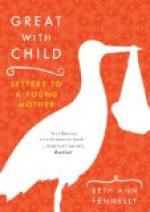Children should be taught to distinguish sounds with closed eyes, or blindfolded. We may strike on various objects, and ask them to tell what we struck, &c. This will lead them to observe sounds; and will perfect their hearing in a remarkable degree.
There are also advantages to be derived from accustoming a child to a great variety of sounds; both as regards their strength and character. But this must only be occasional; for if the ear be constantly accustomed to sounds of any kind, and more especially those which are harsh or loud, the organ of hearing is liable to sustain injury. Music, as it is now beginning to be taught to children in our schools, will do much, I think, to improve the faculty of hearing.
SEC. 2. Seeing.
The sight, says Addison, is the most perfect of all our senses; and this is unquestionably true. But it is more or less perfect, in different individuals, according to the early education they have received. Sometimes, it is true, we are born near-or dim-sighted; but such cases are comparatively rare.
The question is sometimes asked why there are so many persons, now-a-days, who lose their sight, become near-sighted, &c. very young. It may be difficult to answer this question fully; yet I cannot help thinking that the following are some of the causes.
1. The great heat of our apartments, which, together with late hours and much lamp light, affects the eyes unpleasantly, is believed to be among the more prominent causes of early decay of sight. Formerly, our apartments were neither so steadily nor so generally heated; and we rose earlier, and consequently went to bed earlier.
2. The fine print of a large proportion of our books, especially our school books, has done immense injury. I do not believe that reading fine print, occasionally, for a few moments at a time, or reading by a very strong or very weak light in the same way, does harm. On the contrary, I think it may strengthen and improve the sight. It is the long continuance of these things that does the mischief; and the mischief thus done is immense. I rejoice that printers and publishers are beginning of late to use much larger type than they have done for some years past.
3. The early use of spectacles does mischief—I mean before they are needed. After they begin to be needed, there is no advantage in delaying to use them, as some do, for fear they shall wear them too soon. This is about as wise as the practice of going cold to harden ourselves.
4. Reading when we are fatigued, or ill, or have a very full stomach, is another way to injure the sight.
5. Rubbing the eyes with the fingers, or with anything else, does inevitable mischief. The Germans have a proverb which says—“Never touch your eye, except with your elbow.” There is much of good sense in it.
In short, there are a thousand ways in which that delicate organ, the human eye, may sustain injury; and nearly as many in which it may be strengthened, cultivated, and improved. But my limits merely permit me to add, that the frequent but gentle application of water to the eye, several times a day, at such a temperature as is most agreeable—but cold, when it can be borne—is one of the best preservatives of sight which the world affords.




